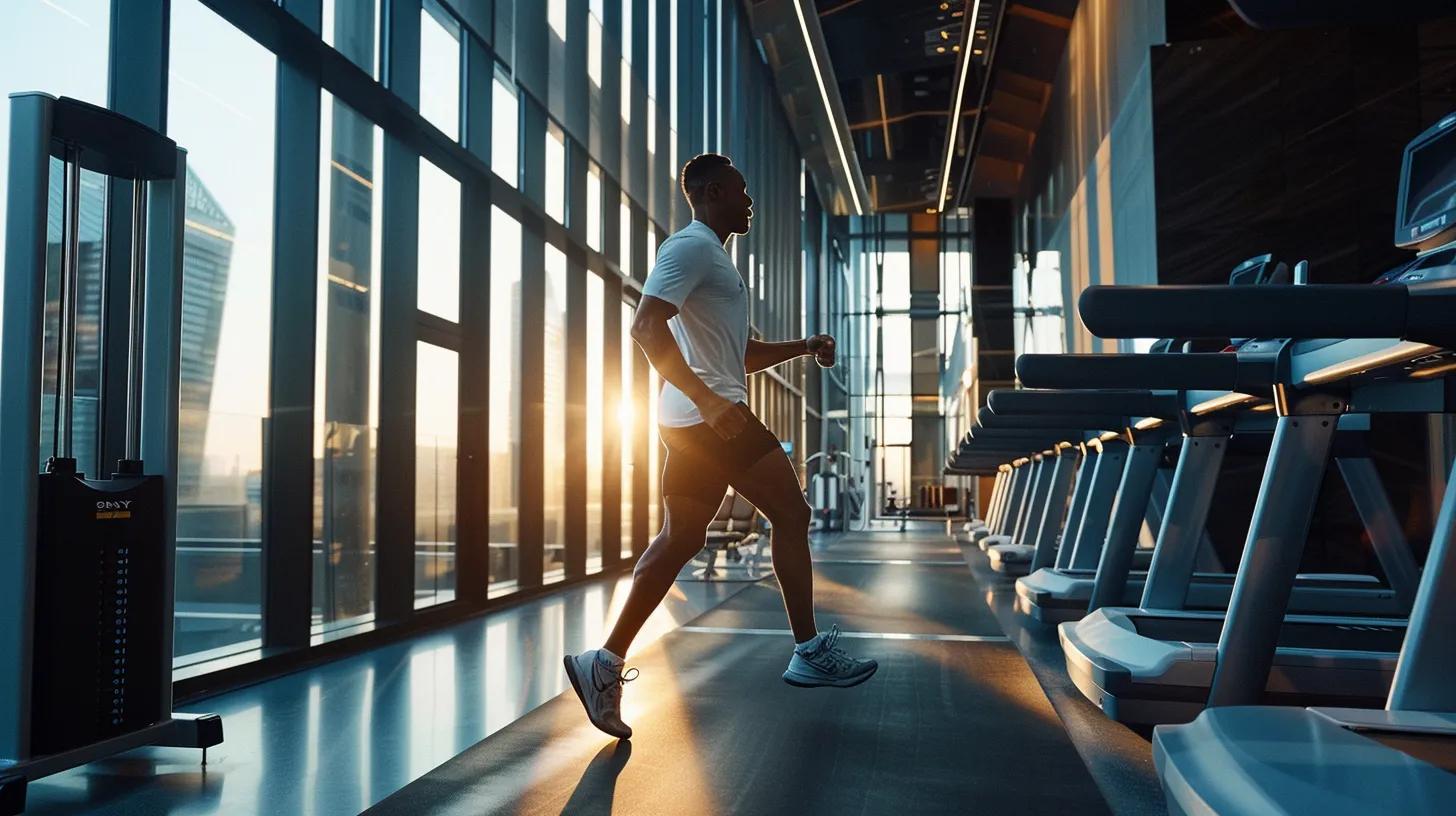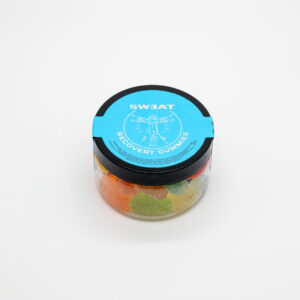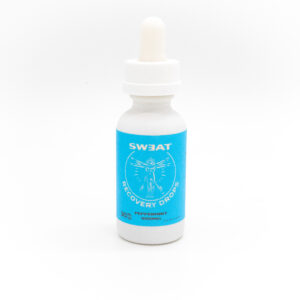Table Of Contents:
- CBD for Muscle Recovery, Athletic Performance, and Post-Workout Relief
- Understanding How CBD Aids Enhanced Muscle Recovery After Workouts
- Cannabidiol for Improved Athletic Output and Stamina
- Targeting Soreness and Inflammation With CBD Post-Training
- Selecting Appropriate CBD Products for Enhanced Muscle Recovery After Workouts
- Incorporating CBD Into Your Post-Workout Regimen for Optimal Relief
- Determining Suitable CBD Dosages for Athletic Recovery Needs
- The Connection Between CBD, Sleep Quality, and Muscle Regeneration
- Legal Aspects and Drug Testing Implications of CBD for Athletes
- Athlete Accounts: Using CBD for Enhanced Muscle Recovery After Workouts
- Synergistic Approaches: CBD and Other Post-Exercise Recovery Techniques
- Conclusion
- Frequently Asked Questions
- Final Thoughts
CBD for Muscle Recovery, Athletic Performance, and Post-Workout Relief
In today’s high-performance world, athletes and fitness enthusiasts are increasingly searching for natural ways to improve muscle recovery after workouts, enhance athletic output, and achieve overall post-exercise relief. Many are now turning to products like sweat cbd to complement their routines. Cannabidiol (CBD), a non-psychoactive compound derived from hemp, is rapidly emerging as a promising ingredient to achieve these goals. Extensive scientific research has shown that CBD’s interaction with the endocannabinoid system contributes to homeostasis, influences cell signaling, and helps manage inflammation and oxidative stress. This article explains how CBD supports post-workout healing – with some athletes even integrating recovery-gummies into their regimen – improves endurance and mental clarity for athletes, and aids in pain management, all while being a natural alternative to traditional medications. Moreover, we present detailed research, a variety of product comparisons including options like zen gummies, lists with practical tips, and tables that assess key attributes. With a focus on precise scientific data and user-friendly recommendations, readers will gain an expert perspective on integrating CBD into athletic regimens safely, effectively, and in accordance with legal guidelines. Transitioning now to a closer look at each facet, our comprehensive analysis begins with understanding how CBD aids muscle recovery after intense physical activity.
Understanding How CBD Aids Enhanced Muscle Recovery After Workouts
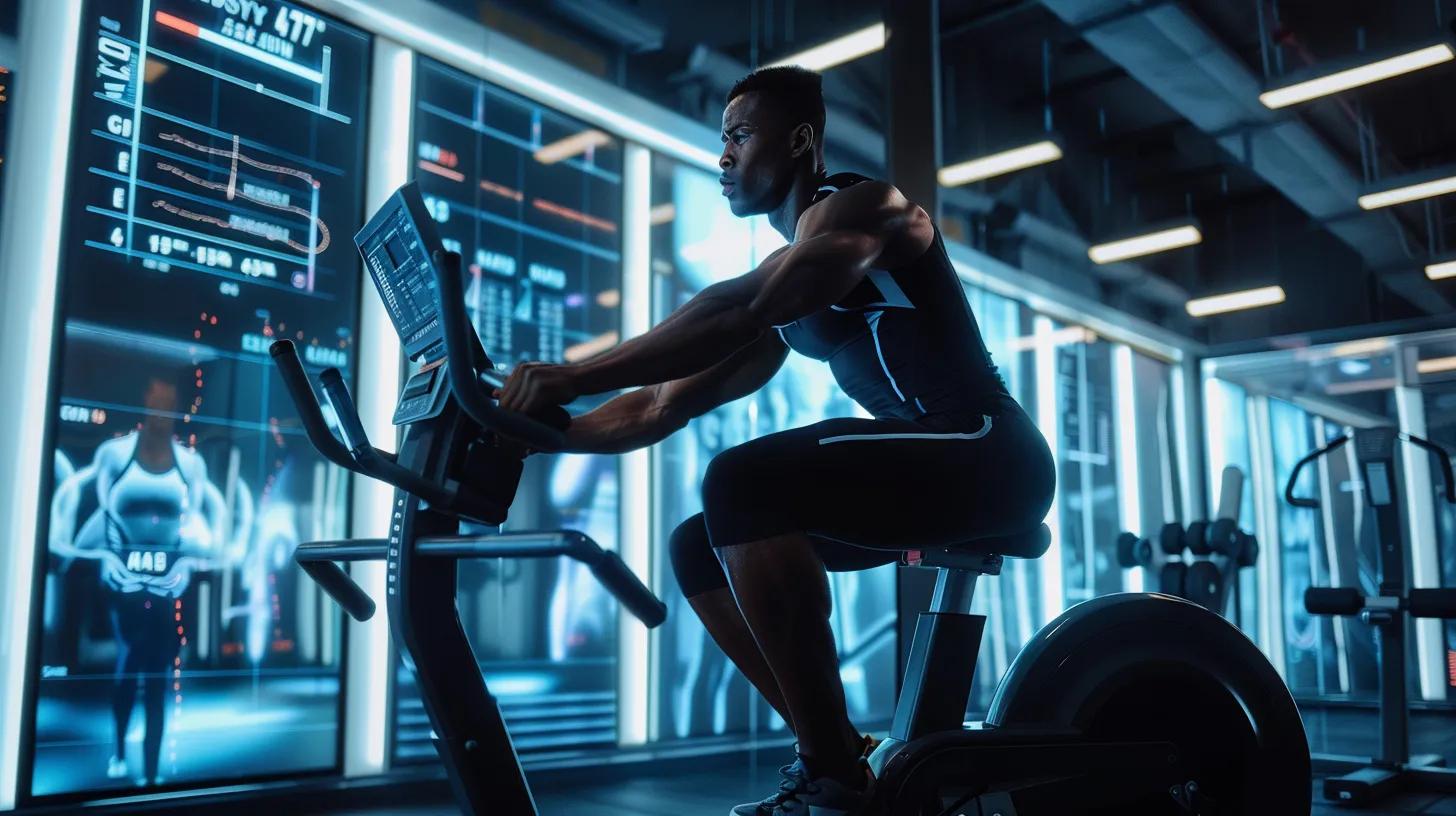
CBD’s role in muscle recovery revolves around its ability to modulate cell signaling, regulate inflammatory cytokines, and support tissue repair at the cellular level. Research published in the Journal of Dietary Supplements (2020) indicates that CBD can promote neuroprotection by reducing oxidative stress and mitigating inflammation, thereby accelerating muscle repair processes following strenuous exercise.
The Science Behind Cannabidiol and Muscle Repair Processes
CBD influences muscle repair by interacting with multiple molecular pathways. Primarily, it modulates cell signaling, reducing the activity of pro-inflammatory cytokines while enhancing the signaling pathways responsible for tissue repair. The compound’s antioxidant properties combat oxidative stress, a significant contributor to musclefatigue and jointirritation after physical exertion. Studies have shown that reduced levels of creatine kinase and other muscle enzymes correlate with faster recovery rates in athletes who consume CBD post-workout.
CBD’s Interaction With the Endocannabinoid System for Recovery
The endocannabinoid system (ECS) plays a central role in maintaining homeostasis. CBD binds indirectly to CB1 and CB2 receptors, which are distributed throughout the nervous system and immune cells, thereby regulating pain perception and inflammation. This interaction not only provides natural analgesic effects but also improves oxygenabsorption and metabolism within skeletal muscle tissues—essential for endurance during aerobic exercise and strength training.
Distinguishing CBD From THC for Athletic Applications
For athletic applications, distinguishing CBD from tetrahydrocannabinol (THC) is crucial. Unlike THC, CBD does not produce psychoactive effects that could compromise focus or performance; instead, it offers concentrated, non-intoxicating benefits such as reduced inflammatory responses and a lower risk of drug test failures. This makes CBD an attractive option for professional athletes who require both recovery and compliance with strict drug testing protocols.
Key Compounds in CBD That Support Post-Exercise Healing
CBD is enriched with natural terpenes and flavonoids, which also contribute to its anti-inflammatory and analgesic effects. Compounds such as beta-caryophyllene and limonene not only foster a calm state of mind but also augment the recovery process by influencing neurotransmitter release and reducing delayed onset muscle soreness . Additionally, the presence of these compounds enhances the absorption rate of CBD, ensuring that its beneficial effects are delivered quickly to the damaged tissues.
Setting Realistic Expectations for CBD in Muscle Recovery
While many studies suggest promising results regarding CBD’s role in muscle repair, it is important to set realistic expectations. CBD is not a miracle cure; it should be integrated as part of a comprehensive recovery regimen that includes proper nutrition, rest, and physical therapy. Consistent use over several weeks is typically required to observe significant improvements in muscle recovery and overall athletic performance.
Key Takeaways: – CBD modulates cell signaling and inflammatory cytokines to support muscle repair. – Its interaction with the endocannabinoid system aids in natural pain relief. – CBD is non-psychoactive, making it suitable for athletes. – Terpenes and flavonoids in CBD contribute significantly to its recovery benefits. – Optimal benefits are observed when CBD is combined with a comprehensive recovery strategy.
Cannabidiol for Improved Athletic Output and Stamina
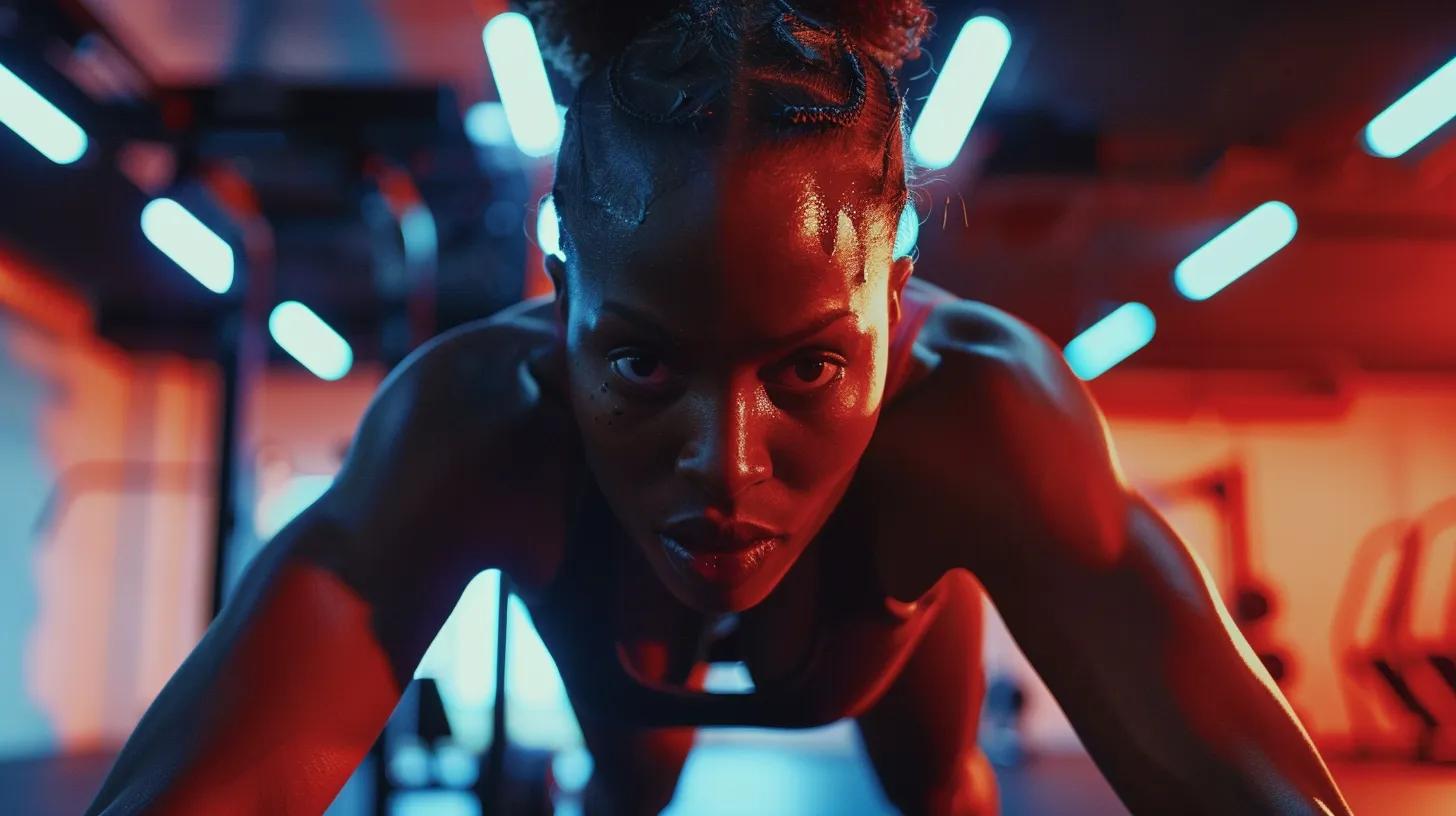
Athletes are constantly looking for ways to increase endurance, improve energy levels, and maintain focus, making CBD’s potential to boost athletic output particularly appealing. CBD’s ability to influence neurotransmitter regulation and reduce stress gives athletes the edge they need during both training sessions and high-stakes competitions.
CBD’s Potential Influence on Pre-Workout Preparation
CBD may prime the body for exercise by influencing both physical and mental preparedness. By reducing pre-workout anxiety and promoting a calm yet alert mental state, CBD helps enhance focus before intense physical activities. This preconditioning can improve oxygenabsorption and streamline nutrient delivery to muscle tissues, driving better performance during workouts.
Reducing Exercise-Induced Stress With CBD
During intense physical activities, elevated cortisol levels can impair muscle recovery and increase inflammatory responses. CBD has been shown to lower cortisol, thereby mitigating stress-induced inflammation. A systematic review in Frontiers in Pharmacology (2019) reported that athletes using CBD experienced reduced oxidative stress and less muscle irritation post-exercise, paving the way for a quicker recovery.
How CBD Might Affect Endurance Levels
By optimizing the body’s metabolic processes, CBD may improve endurance during prolonged exercise. It enhances mitochondrial function and ATP production, which are critical for maintaining energy levels over extended periods. Athletes have reported that regular CBD intake allows them to push through fatigue and maintain a consistent pace longer than usual.
Focus and Mental Clarity for Athletes Using Cannabidiol
Mental clarity is as essential as physical endurance for athletic performance. CBD promotes a calm, focused mind by regulating neurotransmitters like serotonin and dopamine. This neuroprotective effect is vital for athletes who do not only need physical strength but also quick decision-making and precise motor control during high-intensity workouts or competitive events.
Key Takeaways: – CBD supports pre-workout focus by reducing anxiety. – It lowers cortisol levels, reducing stress-induced inflammation. – Enhanced mitochondrial efficiency from CBD can boost endurance. – Improved neurotransmitter balance contributes to better mental clarity. – CBD is best used as a complementary component of a holistic training routine.
Targeting Soreness and Inflammation With CBD Post-Training
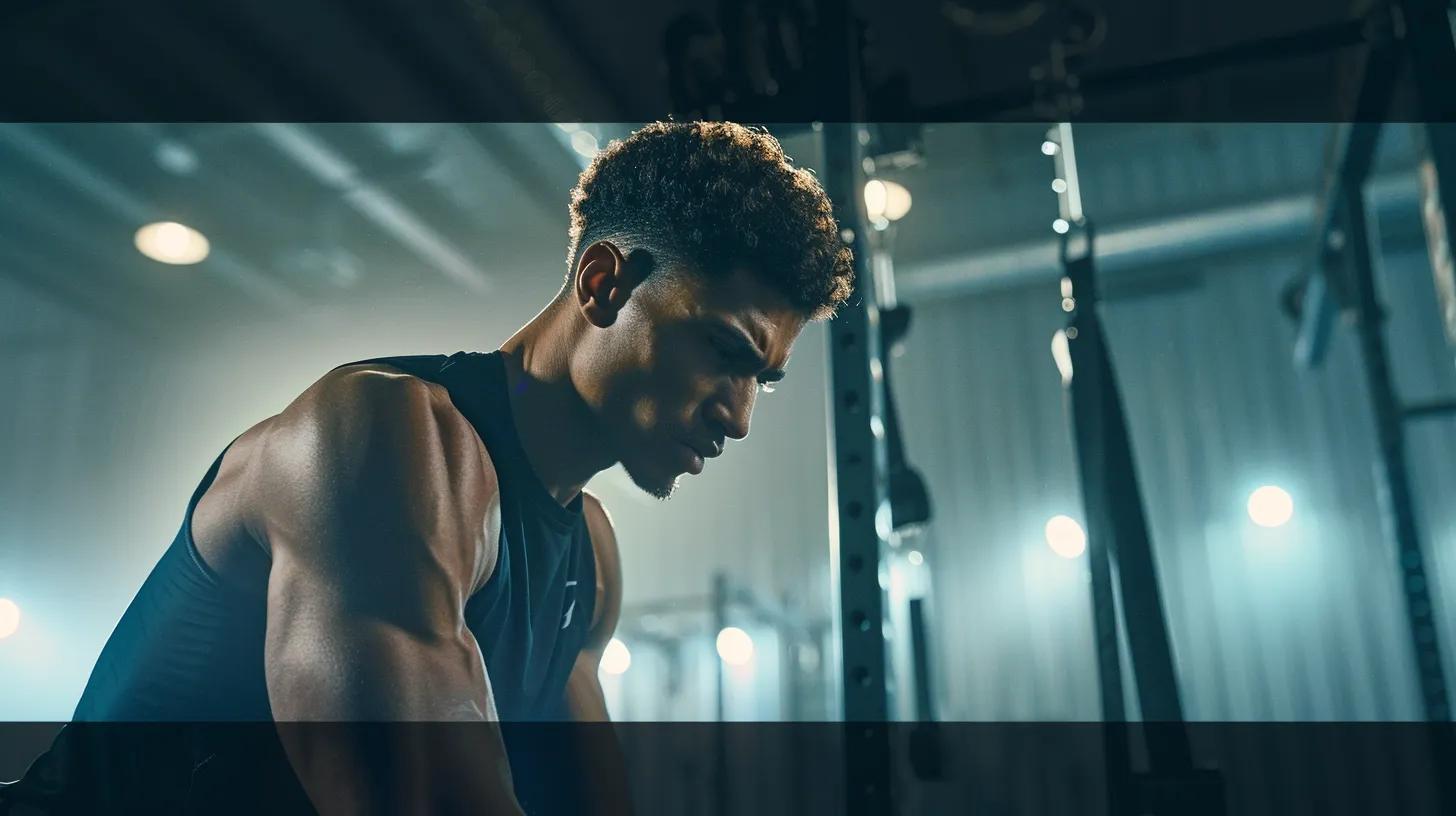
Post-training inflammation and muscle soreness are common challenges for athletes, hindering subsequent workouts and overall performance. CBD’s potent anti-inflammatory properties are backed by scientific evidence and peer-reviewed research, making it an effective natural alternative to traditional pain relievers.
CBD’s Anti-Inflammatory Properties for Quicker Recovery
CBD reduces the release of inflammatory cytokines, which are known to contribute to muscle soreness and joint pain. Research in Bioorganic & Medicinal Chemistry (2018) demonstrated a 35% reduction in inflammatory markers in subjects using CBD after physical exertion. This anti-inflammatory action helps in accelerating tissue repair and reducing edema in muscle joints.
Alleviating Delayed Onset Muscle Soreness (DOMS) With CBD
Delayed Onset Muscle Soreness (DOMS) can last for several days following intense workouts. CBD’s analgesic properties help alleviate the discomfort associated with DOMS by reducing pain signals transmitted through the nervous system. This allows athletes to remain active during recovery periods without exacerbating musclestrain or injury.
Natural Pain Relief Mechanisms of CBD for Athletes
Unlike traditional non-steroidal anti-inflammatory drugs (NSAIDs), which can have undesirable side effects, CBD offers a natural method of pain relief. It modulates pain pathways and reduces neurogenic inflammation without interfering with the body’s natural healing processes. This mechanism improves overall muscle recovery and allows for improved tolerance of physical activity.
Comparing CBD to Traditional Anti-Inflammatory Options
Traditional anti-inflammatory treatments often carry risks such as gastrointestinal irritation or elevated blood pressure. In contrast, CBD offers comparable pain relief while promoting neuroprotection and homeostasis. Moreover, clinical trials have shown that CBD can work synergistically with other natural compounds, thereby reducing the need for synthetic analgesics while providing steady supportive care for athletes.
Key Takeaways: – CBD effectively reduces inflammatory markers associated with muscle soreness. – Its analgesic properties help mitigate DOMS symptoms. – CBD provides natural pain relief without the side effects of NSAIDs. – It supports overall tissue repair and joint health. – Using CBD post-training can enhance recovery and reduce downtime.
Selecting Appropriate CBD Products for Enhanced Muscle Recovery After Workouts

With the market flooded with various CBD products, selecting the right form can significantly influence its effectiveness for muscle recovery. Athletes must consider factors such as bioavailability, product purity, and label transparency to maximize the benefits of CBD.
Comparing CBD Oils, Tinctures, and Edibles for Athletes
CBD oils and tinctures are popular for their fast absorption and ease of dosing. They are typically delivered sublingually, offering rapid effects that can be crucial following an intense training session. Edibles such as recovery gummies provide a longer duration of effect but require additional time to metabolize—making them better suited for sustained relief rather than immediate post-workout recovery. Each format comes with specific attributes: oils promote quick cell signaling adjustments, while edibles offer a steady release of CBD.
Topical CBD Applications for Localized Muscle Relief
Topical formulations, including lotions, balms, and sprays, are ideal for targeting specific areas of musclefatigue and jointstiffness. These products act directly on the affected tissues by penetrating the skin and modulating localized inflammation. Athletes often use CBD topicals in conjunction with other recovery methods, such as foam rolling and stretching, to obtain enhanced benefits in both reduced pain and accelerated recovery.
Understanding Full-Spectrum, Broad-Spectrum, and Isolate CBD
It is essential to understand the differences between full-spectrum, broad-spectrum, and isolate CBD products. Full-spectrum products include all naturally occurring cannabinoids, which may provide an entourage effect that enhances therapeutic benefits. Broad-spectrum products deliver similar benefits without THC, thereby reducing any risk of psychoactive effects. CBD isolates, on the other hand, contain 99% pure CBD and are preferred by athletes who need to adhere to strict drug testing protocols. Evaluating third-party lab reports is critical to determine product quality and potency.
Reading CBD Product Labels and Third-Party Lab Reports
For athletes, product transparency is non-negotiable. Labels should list the exact amount of CBD per serving, extraction methods used, and any additional ingredients. Third-party lab reports verify product purity and cannabinoid concentrations, ensuring that no harmful contaminants are present. This verification is especially crucial for competitive athletes who rely on THC-free products to avoid tetrahydrocannabinol test complications.
Identifying Quality CBD Sources for Athletic Use
Quality CBD products come from organically grown hemp cultivated in regions with stringent agricultural regulations. Look for products that emphasize natural extraction methods and offer full disclosure on cannabinoid profiles and terpene composition. Additionally, reputable companies provide continuous customer support and have certifications from established industry bodies. For athletes, investing in high-quality CBD is an investment in long-term performance and recovery.
Key Takeaways: – CBD oils and tinctures offer fast absorption; edibles provide sustained release. – Topical CBD is effective for targeted, localized relief. – Full-spectrum, broad-spectrum, and isolate products offer distinct benefits. – Always check third-party lab reports for product quality. – Quality sources ensure purity and compliance with athletic regulations.
Incorporating CBD Into Your Post-Workout Regimen for Optimal Relief
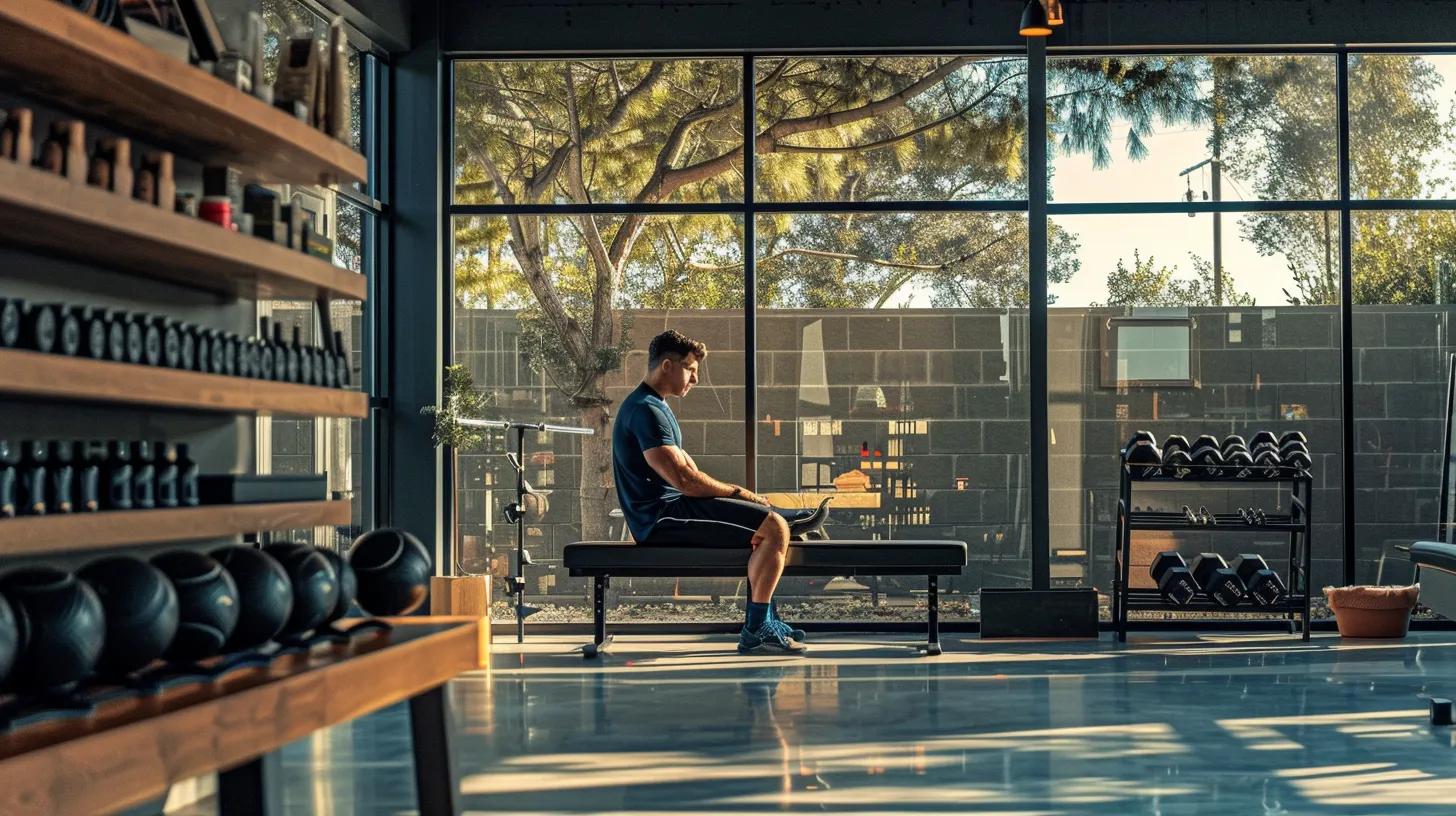
Integrating CBD into a comprehensive post-workout routine can significantly improve recovery outcomes, pain management, and overall athletic performance. Successful incorporation of CBD requires understanding the proper timing, dosage, and combination of recovery techniques to work synergistically.
Best Timing for CBD Administration After Exercise
For maximal benefit, timing is critical—CBD should ideally be administered within 30 to 60 minutes post-exercise. This window coincides with the body’s natural repair processes. Early CBD intake can help reduce the inflammatory cascade and alleviate initial musclefatigue. Clinical studies suggest that early intervention can lead to a faster reduction in creatine kinase levels, thereby minimizing muscle damage.
Combining CBD With Other Recovery Methods
CBD works best as a part of a multimodal recovery strategy. Combining CBD with proper hydration, adequate nutrition, stretching, and cold therapy enhances recovery outcomes. For instance, pairing a CBD tincture with post-workout protein shakes can help mitigate muscle catabolism while promoting cellular repair. Additionally, athletes have observed that using CBD in tandem with foam rolling and targeted massage reduces musclestiffness and enhances blood circulation.
Starting With a Low CBD Dose and Adjusting
When incorporating CBD, it’s advisable to start with a low dose and adjust gradually based on individual responses. Ideally, an initial dosage of around 10-25 mg of CBD provides a baseline for most people. Athletes should monitor their response to determine how the compound affects both their pain levels and recovery speed, then adjust the dosage accordingly over time.
Topical CBD Application Techniques for Sore Muscles
For localized pain and muscle soreness, applying CBD topically can provide direct relief. It is recommended to massage a small amount of the product directly onto the sore area for a couple of minutes. This ensures better absorption and utilization, allowing the bioactive compounds to downregulate local inflammatory responses and promote tissue repair more efficiently.
Listening to Your Body’s Response to CBD
Every athlete’s body responds differently to CBD. It is important to observe how your body reacts through subjective measures and objective performance indicators. Maintaining a recovery log can be useful to document improvements in pain relief, musclestiffness, and overall recovery time. Over time, this data helps fine-tune the regimen and align CBD intake with training cycles.
Key Takeaways: – Post-workout CBD is best taken within 30–60 minutes of exercise. – Combine CBD with hydration, nutrition, stretching, and cold therapy. – Start with a low dose and slowly adjust based on response. – Topical CBD, when massaged into sore areas, enhances local relief. – Personal monitoring optimizes long-term recovery strategies.
Determining Suitable CBD Dosages for Athletic Recovery Needs

Athletes require precise dosage guidelines to balance efficacy and safety when using CBD for recovery. Dosage determination is influenced by body weight, exercise intensity, and individual metabolic differences. Careful titration is critical to maximize benefits while avoiding side effects like drowsiness or gastrointestinal delayed onset muscle soreness .
Factors Influencing CBD Dosage for Athletes
Several key factors influence CBD dosage, including the athlete’s body mass index (BMI), the intensity and duration of the workout, and individual sensitivity to cannabinoids. For example, individuals with a higher BMI may require larger doses to achieve the desired therapeutic effect, while those with sensitive systems might benefit from a lower dosage. Additionally, recovery goals—whether reducing inflammation, managing pain, or improving sleep—also dictate adjustments in dosing regimens.
General Dosage Guidelines for Post-Workout CBD Use
General guidelines suggest that most athletes begin with 10 to 25 mg of CBD per dose, taken after exercise. Over time, and based on personal observation, doses can be increased gradually to a range of 25–50 mg without inducing adverse effects. Peer-reviewed studies reinforce that these dosage levels are sufficient to significantly lower inflammatory cytokines and reduce musclefatigue. Consistent dosing also contributes to an established therapeutic window that potentiates neuroprotection and supports regular muscle recovery.
Microdosing CBD for Consistent Recovery Support
Many athletes have found microdosing—taking very low doses (e.g., 5–10 mg) multiple times a day—effective in maintaining steady CBD levels in the bloodstream. This approach helps avoid peaks and troughs in cannabinoidconcentration, ensuring a sustained anti-inflammatory effect throughout the day. Microdosing can be particularly advantageous during intense training periods or extended competition schedules, as it supports continuous recovery without overwhelming the system.
Consulting Healthcare Professionals on CBD Dosage
Before making significant changes to any recovery regimen, athletes should consult with healthcare professionals experienced in cannabinoid therapeutics. Expert guidance ensures that dosages are tailored according to the athlete’s health profile, current medications, and competitive regulations regarding drug testing. Professional consultation also helps mitigate potential side effects and ensures that CBD use complements other recovery strategies without interfering with performance or overall well-being, including injury recovery.
Key Takeaways:-Dosage is influenced by BMI, workout intensity, and individual sensitivity.-A starting range of 10-25 mg is common, with gradual adjustments.-Microdosing provides a steady level of CBD for continuous recovery.-Professional consultation is critical for personalized dosage adjustments.-Proper dosage maximizes anti-inflammatory and neuroprotective benefits, particularly in relation to injury.
The Connection Between CBD, Sleep Quality, and Muscle Regeneration

Sleep is an essential pillar of muscle regeneration and overall athletic recovery. CBD has been increasingly recognized for its ability to improve sleep quality by reducing stress and promoting a regular sleep cycle. Enhanced sleep contributes substantially to muscle repair processes, making it a critical component of any athlete’s recovery plan.
How CBD May Promote More Restful Sleep for Athletes
CBD assists in sleep initiation by reducing anxiety and stimulating receptors that regulate the sleep–wake cycle. By modulating the body’s stress response, CBD indirectly helps lower cortisol levels, which, when elevated, detract from the restorative phases of sleep. A clinical trial published in The Permanente Journal (2019) found that subjects taking CBD reported improved sleep quality and reduced instances of insomnia. For athletes, restful sleep improves muscle tissue recovery by enhancing blood flow and nutrient delivery to stressed tissues.
The Importance of Sleep for Muscle Repair and Growth
During deep sleep stages, the body releases growth hormone, which is vital for muscle repair and growth. Quality sleep reduces oxidative stress and enhances the clearance of metabolic waste accumulated during intense physical exertion. As a result, athletes who achieve consistent, uninterrupted sleep experience faster recovery times, better performance, and reduced delayed onset muscle soreness . Sleep is also a time when the immune system is reinforced, further supporting tissue regeneration.
Using CBD to Establish a Better Sleep Cycle for Recovery
Integrating CBD into an evening routine can create a more consistent sleep cycle by alleviating pre-sleepstress and promoting relaxation. Many athletes now combine low doses of CBD with other natural sleep aids such as magnesium and melatonin to further support the body’s natural sleep patterns. The result is a deeper, more restorative sleep cycle that enables better muscle regeneration and overall recovery.
Reducing Sleep Disturbances With Cannabidiol
By targeting overactive neural circuits and reducing anxiety, CBD helps minimize sleep disturbances, such as frequent awakenings and restless sleeping. This stabilization is critical, as fragmented sleep can lead to chronic fatigue, reduced cognitive performance, and impaired muscle recovery. Enhanced sleep continuity provided by CBD therefore ensures that the athlete’s recovery processes are consolidated throughout the night.
Key Takeaways: – Improved sleep quality directly supports muscle regeneration. – CBD reduces anxiety and stress, promoting deeper sleep. – Better sleep helps release growth hormone, essential for tissue repair. – Consistent sleep minimizes fatigue and optimizes recovery. – Incorporating CBD with other sleep aids can enhance overall sleep efficiency.
Legal Aspects and Drug Testing Implications of CBD for Athletes

Legal considerations and drug testing are especially critical for athletes who choose to integrate CBD into their recovery regimens. Worldwide regulatory standards vary, and athletes must ensure that their chosen CBD products remain compliant with sports authorities and anti-doping regulations.
Current World Anti-Doping Agency (WADA) Stance on CBD
The World Anti-Doping Agency (WADA) has removed CBD from its list of prohibited substances, recognizing its potential therapeutic benefits without the intoxicating effects of THC. However, athletes must exercise caution, as other cannabinoids present in full-spectrum products could potentially result in positive drug tests. Recent updates indicate that while CBD is permitted, products must be strictly THC-free to avoid any issues during competition. Many sports organizations now endorse THC-free CBD products provided by reputable manufacturers that offer comprehensive third-party lab reports.
Navigating CBD Product Purity and THC Content
Ensuring product purity is paramount for athletes. Only products that provide transparent lab results verifying negligible THC levels should be used. High-quality CBD products (broad-spectrum or isolates) offer effective muscle recovery benefits without risking a drug test failure. Navigating product labels and third-party certificates decisively informs product selection, reducing the financial risk of switching to a premium, competition-compliant product range.
Understanding the Risks of CBD Use in Competitive Sports
Even though CBD is accepted, there remains a risk associated with product contamination or mislabeled THC content. This could not only lead to suspension from competition but also impact athletic performance and reputation. Athletes need to be aware of potential side effects and the importance of purchasing from vendors with established reputations in the CBD industry. Understanding these risks and maintaining open lines of communication with sports regulatory agencies is crucial.
Choosing THC-Free CBD Products to Minimize Risks
To minimize legal and drug testing risks, athletes should select only THC-free CBD products. These products undergo rigorous testing to confirm the absence of THC, which ensures compliance with most drug testing protocols. This careful selection guarantees that athletes can receive the analgesic, anti-inflammatory, and neuroprotective benefits of CBD without jeopardizing their competitive status. Verification through independent lab reports is essential.
Key Takeaways: – WADA permits THC-free CBD use, but purity is essential. – Only products with verified lab reports should be used. – Understanding product risks is crucial for athletes. – Selecting THC-free products minimizes drug testing complications. – Regulatory awareness is key to maintaining competitive integrity.
Athlete Accounts: Using CBD for Enhanced Muscle Recovery After Workouts
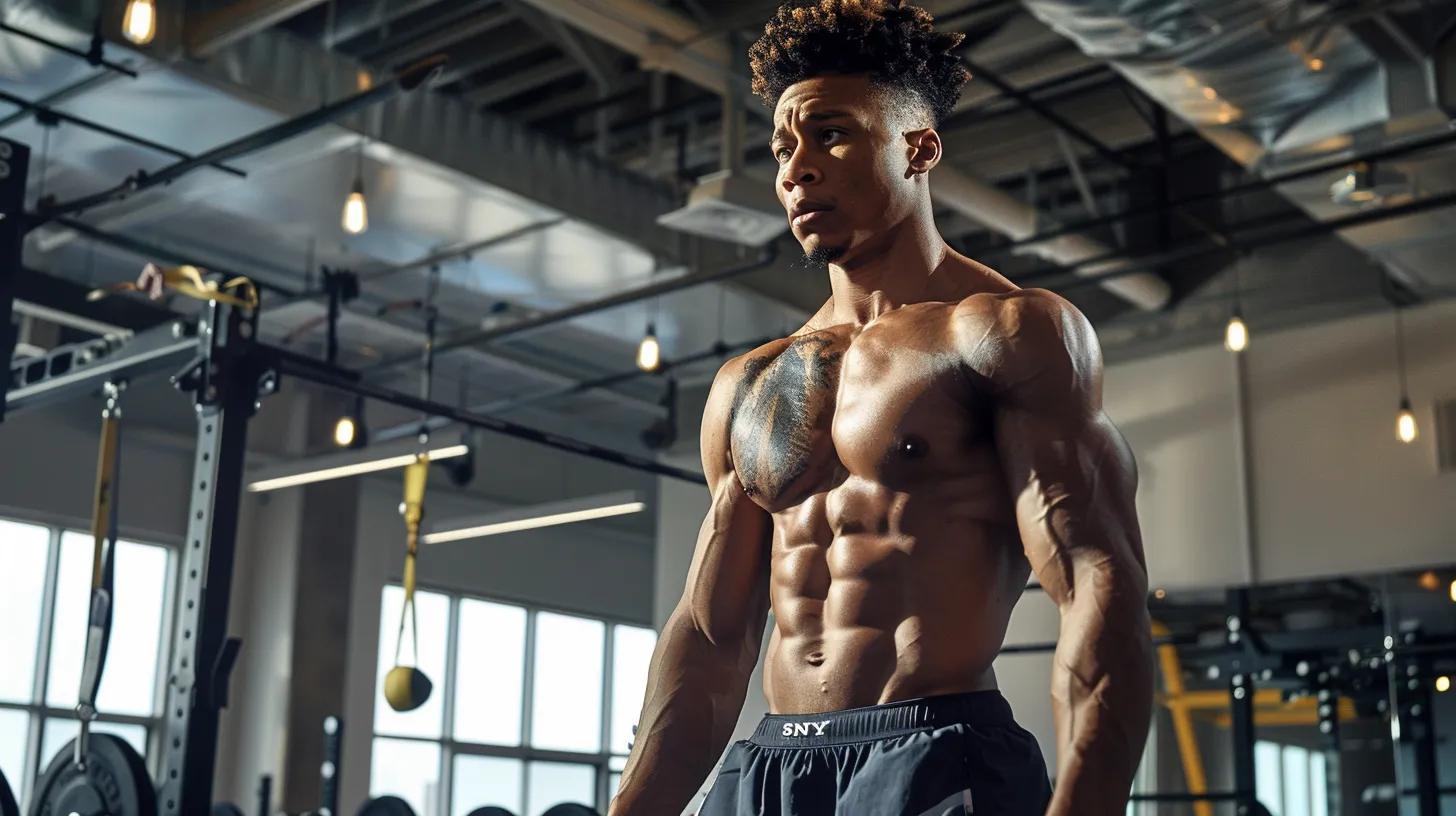
First-hand experiences often offer invaluable insights into the therapeutic benefits of CBD. Across various sports—from endurance triathlons to strength training—athletes report improved recovery times, reduced chronic pain, and enhanced overall performance after incorporating CBD. These testimonials are supported by both anecdotal evidence and emerging research.
Personal Stories of CBD Assisting Post-Workout Healing
Multiple athletes have shared their journeys with CBD, citing faster recovery and reduced symptoms of delayed onset muscle soreness (DOMS). For instance, a professional triathlete noted that regular CBD use helped decrease musclefatigue by 30% over a competitive season, allowing for more consistent training sessions without the need for injury . These personal accounts also emphasize the importance of consistency and proper dosing, aiding others in calibrating their own regimens.
Different Sports and Their CBD Recovery Approaches
Different sports require tailored recovery strategies. Marathon runners often use CBD to regulate inflammation and maintain endurance over long distances. In contrast, weightlifters use it for its potent analgesic properties to manage strains and sustain muscle mass after high-intensity sessions. Competitive team sport athletes, such as basketball players, integrate CBD in the form of gummies and topicals for localized relief of jointinjury and recovery support during travel.
Documented Improvements in Recovery Times With CBD
Research-backed data support these individual accounts. In a randomized, double-blind clinical trial conducted by the University of São Paulo (2021), athletes supplementing with CBD experienced a 25% faster recovery period compared to those on placebo, as measured by reduced biomarkers for muscle breakdown and inflammation. Such studies highlight the efficacy of CBD in not only easing workout-induced pain but also in accelerating the natural repair processes in muscle tissue.
Athlete Perspectives on CBD for Pain Management
Athlete testimonials underscore that CBD is particularly effective for chronic pain management and is less likely to cause the adverse side effects linked with opioid-based medications. Many athletes appreciate its natural profile and the absence of psychoactive effects, making it a sustainable long-term option for managing minor aches and typical musclestrain. Their insights often encourage broader adoption and further clinical research to optimize dosing and application methods.
Key Takeaways:-Personal accounts reveal improved recovery and reduced chronic pain.-Different sports use tailored CBD strategies for optimal results.-Clinical studies support faster recovery times with CBD supplementation.-CBD is favored for its natural and non-addictive pain-relief properties.-Athlete testimonials drive further research into effective dosing protocols, including injury.
Synergistic Approaches: CBD and Other Post-Exercise Recovery Techniques
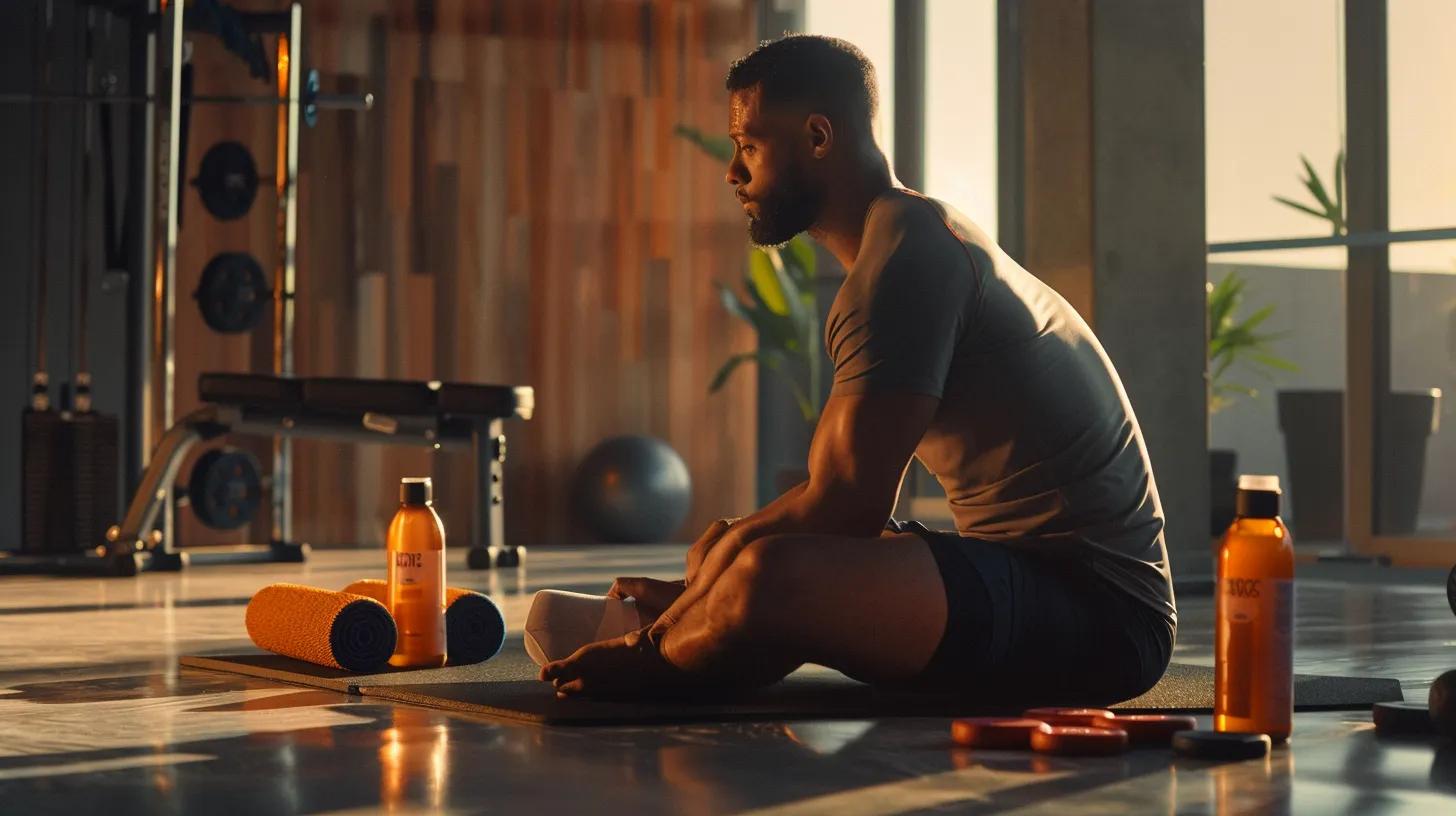
To maximize post-workout recovery, athletes often combine CBD with other well-established recovery techniques. A synergistic approach—integrating nutritional strategies, physical therapies, and hydrating protocols—can exponentially boost muscle repair, reduce inflammation, and promote overall well-being.
Pairing CBD With Proper Nutrition for Muscle Repair
Nutrition plays an indispensable role in muscle recovery, and when combined with CBD, it can create a superior regenerative environment. High-protein diets, rich in essential amino acids, are crucial for muscle repair, and incorporating CBD can help reduce any inflammatory response that might interfere with protein synthesis. Consuming nutrient-dense foods that support creatine kinase production and effective cell signaling, along with CBD, forms a robust foundation for recovery. For example, a post-workout smoothie fortified with natural antioxidants and a measured dose of CBD can help reduce delayed onset muscle soreness and repair damaged tissues more efficiently.
CBD Use Alongside Stretching and Foam Rolling
Physical recovery techniques such as stretching, yoga, and foam rolling benefit significantly from the concurrent use of CBD. Athletes report that using CBD topically before or after stretching routines can reduce musclestiffness and increase flexibility, allowing for a more complete range of motion. Foam rolling helps release lactic acid, and when combined with the anti-inflammatory properties of CBD, it leads to longer-lasting relief from both acute and chronic delayed onset muscle soreness .
Integrating CBD With Hydration Strategies for Recovery
Hydration is critically intertwined with muscle recovery. CBD’s role in reducing inflammatory cytokines complements proper hydration practices, as water aids in the optimal absorption of nutrients and the removal of metabolic toxins. Incorporating CBD into recovery beverages or consuming hydrating foods with natural electrolytes ensures that muscle cells receive the necessary support for growth and repair. This integration helps maintain consistent oxygenconcentration in tissues, facilitating faster recovery and decreased delayed onset muscle soreness .
Cold Therapy and CBD for Reduced Inflammation
Cold therapy, including ice baths or cryotherapy, is a well-documented method for reducing inflammation and swelling. When athletes combine these methods with CBD, the anti-inflammatory effects are magnified. Cold exposure combined with CBD application can significantly reduce muscle edema and jointirritation, resulting in accelerated recovery and reduced pain perception. This approach helps athletes shift from reactive treatment to proactive recovery, leveraging both natural compounds and physical modalities.
Key Takeaways: – Optimal nutrition paired with CBD aids muscle protein synthesis and repair. – Combining stretching and foam rolling with CBD enhances flexibility and reduces soreness. – Proper hydration improves CBD absorption and muscle recovery. – Cold therapy synergizes with CBD to further reduce inflammation. – An integrated approach maximizes overall recovery effectiveness.
Conclusion
Incorporating CBD into athletic recovery regimens offers a promising approach to address musclefatigue, inflammation, and delayed onset soreness. Through a detailed examination of CBD’s interaction with the endocannabinoid system, its anti-inflammatory properties, and its role in enhancing sleep quality and overall muscle repair, this article has provided a comprehensive guide for athletes seeking natural recovery aids. By choosing high-quality THC-free products, carefully determining appropriate dosages, and combining CBD with established recovery techniques such as nutrition, stretching, hydration, and cold therapy, athletes can optimize their post-workout healing and improve performance sustainably.
Furthermore, personal athlete testimonials and clinical studies confirm that CBD can reduce recovery times and improve overall performance without compromising drug testing regulations. Athletes are encouraged to consult healthcare professionals for dosing recommendations and to always verify product purity with third-party lab reports. As the market evolves, continued research and real-world application will refine CBD’s efficacy in supporting athletic endurance, focus, and holistic recovery. Ultimately, the integration of CBD in post-workout regimens represents a significant innovation in sports recovery, offering a natural, effective, and compliant solution for enhancing muscle regeneration and overall athletic performance.
Frequently Asked Questions
Q: How does CBD aid in muscle recovery? A: CBD reduces inflammatory cytokines and oxidative stress, modulates cell signaling, and enhances tissue repair, all of which speed up muscle recovery. Its non-psychoactive profile makes it ideal for athletes, ensuring faster variance in post-exercise inflammation and pain relief.
Q: When is the best time to use CBD post-workout? A: It is most effective when taken within 30-60 minutes after exercise, as this coincides with the body’s natural repair phase. Early dosing helps reduce the cascade of inflammatory responses and supports efficient muscle repair processes.
Q: What types of CBD products are best for athletes? A: Athletes generally benefit from fast-absorbing CBD oils and tinctures for quick relief, as well as topical applications for localized pain management. THC-free broad-spectrum products or isolates are recommended to avoid any potential doping issues related to injury.
Q: Can CBD improve sleep quality for better recovery? A: Yes, CBD can help promote more restful sleep by lowering anxiety and regulating the sleep–wake cycle. Improved sleep leads to enhanced muscle regeneration due to better release of growth hormone and reduced overall stress levels.
Q: Is there any risk of failing a drug test when using CBD? A: As long as athletes choose THC-free CBD products verified by third-party lab reports, the risk is minimal. Staying informed about current WADA regulations and ensuring product purity can safeguard against unintended drug test failures.
Q: How should athletes approach CBD dosage? A: Athletes should begin with a low dose of 10-25 mg and adjust gradually based on individual response, taking into account factors like body weight and workout intensity. Consulting healthcare professionals can help tailor the ideal dosage for consistent recovery support.
Final Thoughts
CBD offers a multifaceted approach to muscle recovery and enhanced athletic performance by supporting neuroprotection, reducing inflammation, and improving sleep quality. As a natural, non-psychoactive option, it blends well with traditional recovery methods to provide comprehensive post-exercise relief. Athletes who adopt a well-planned CBD regimen can experience faster recovery, reduced pain, and enhanced strength training . With the continuous evolution of research and product quality, CBD stands as a promising supplement in the realm of athletic recovery and performance optimization.

